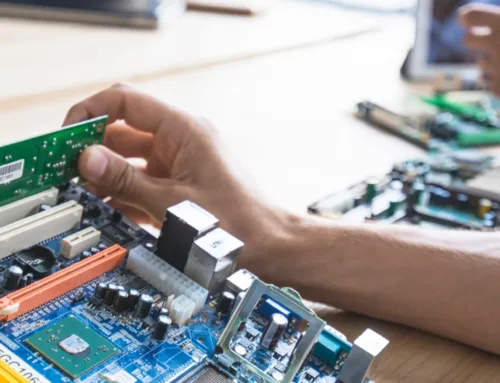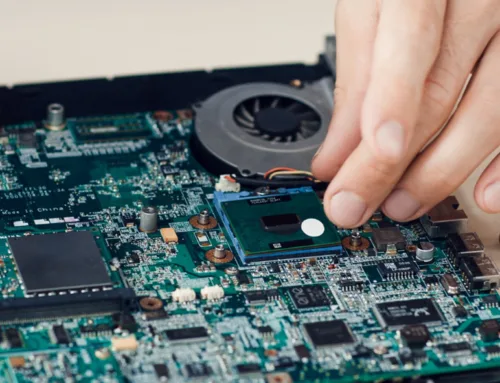The Smart Home Technician: How to Pivot to the Next High-Margin Repair Niche

Introduction
The smart home is no longer a futuristic fantasy; it’s a modern reality. From voice assistants like Alexa and Google Home to smart thermostats, locks, and lighting, our homes are becoming interconnected ecosystems. This market is exploding, with billions of dollars in growth predicted over the next decade.
But here’s the crucial part: with every new smart device sold, a new potential point of failure is introduced. Just like with smartphones and laptops, these devices are susceptible to glitches, software bugs, and hardware failures. The good news? There is a severe shortage of skilled technicians who can fix them.
For a forward-thinking electronics repair business, this presents an incredible opportunity to pivot into a high-demand, high-margin niche. By becoming a trusted smart home technician, you can move your business to the forefront of a brand-new market, attract a more affluent clientele, and leave the competition behind.
The Business Case for Smart Home Repair
Before you invest, understand the key reasons this niche is so profitable:
-
High-Margin Repairs: Unlike a smartphone screen or a laptop battery, there is no standardized, low-cost repair for a smart lock or a smart thermostat. This allows you to set premium pricing for your specialized knowledge.
-
Less Competition: While every corner of your city has a
phone fixing servicesshop, very few, if any, have a dedicatedsmart home repairspecialist. This means you can be the go-to expert in your area. -
Recurring Revenue: Smart home owners often have multiple devices from different manufacturers, and they crave a single point of contact for all their technical issues. This is a perfect opportunity to sell an
IT service contractsfor ongoing maintenance and support.
The Blueprint for a Smart Home Technician
1. Acquire the Knowledge & Tools
The most valuable tool in this niche isn’t a soldering iron; it’s knowledge.
-
Software is Key: Unlike a broken screen, most smart home issues are software-related (e.g., poor Wi-Fi connectivity, app-to-device communication failure, or failed automation routines). You must be a master of troubleshooting networks and software.
-
Specialized Hardware Skills: While many tools overlap with standard electronics repair, a smart home technician also needs to understand low-voltage wiring, home networking basics, and how to safely install and uninstall devices.
-
Stay Updated: The smart home ecosystem is constantly changing. Follow tech blogs, join forums, and stay informed on new products, firmware updates, and emerging standards like Matter.
2. Identify the Most Common Failures
Instead of waiting for devices to break, you can proactively offer solutions to the most frequent problems.
-
Connectivity & Network Issues: The most common problem is poor Wi-Fi or interference. You can offer a
computer services near meormobile computer repair near meto diagnose and fix the home network itself. -
Device Compatibility & Integration: Devices from different brands often struggle to work together. You can offer a paid consultation to help customers choose compatible devices or set up a central hub.
-
Firmware & Software Bugs: Smart devices regularly receive updates. You can offer a service to perform these updates, resolve software bugs, and fix corrupted settings.
-
Power & Battery Issues: Smart cameras, locks, and sensors run on batteries that can fail. You can create a service line to replace batteries or troubleshoot power source issues.
The BytePhase Advantage: The Platform for a New Niche
Attempting to manage a new service line like smart home repair with spreadsheets and pen and paper is a recipe for chaos. BytePhase is the unified platform that makes this pivot seamless and profitable.
-
Customizable Work Orders: Create new
repair desktickets specifically for smart home devices, complete with fields for serial numbers, network settings, and a history of all troubleshooting steps. -
Specialized Inventory Management: Track the parts and specialized tools you need for this niche, from low-voltage cables to smart hubs and specific batteries.
-
Profitability Reporting: Use BytePhase’s analytics to track the profitability of your
smart home repairservices. See which services are most profitable and which are worth scaling. -
Seamless Customer Communication: Manage all communication with clients from a single platform, keeping them updated on the status of their repair, which is especially crucial for in-home service calls.
By investing in your knowledge and leveraging a powerful platform like BytePhase, you can position your electronics repair business as the leading smart home technician in your community, securing your position at the forefront of the industry.













